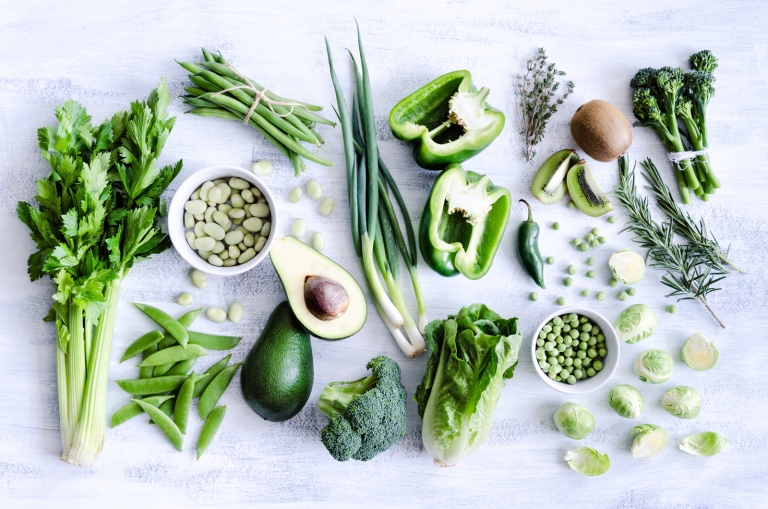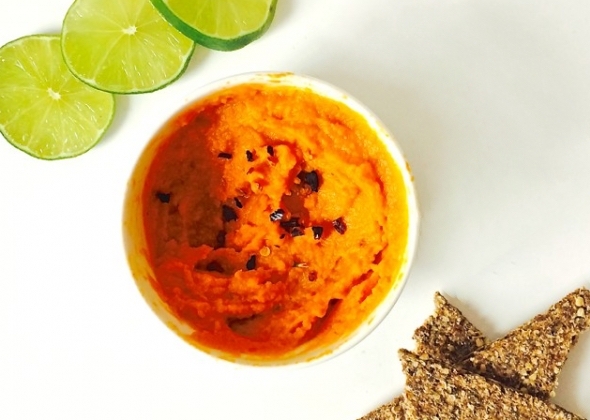It’s time we started reminding ourselves to get back to basics. From a food perspective, this simply means eating plants… Lots and lots of plants. Eating real food – food that comes from the ground – is what Mother Nature intended.
We need to ditch the sea of processed foods that have been created to tempt us into a life of high sugar consumption and instead start eating more food that rots. I know it sounds a bit strange but that’s what our bodies need – real, vibrant, living food that eventually rots. Food that will happily sit on your shelves for months is dead food.
These days, when you enter the supermarket, there are aisles upon aisles of boxes and tins, package-wrapped ingredients and ready-prepared frozen meals. These are foods full of empty calories, chemicals and preservatives – and they’re precisely what is making the rates of obesity, diabetes and disease in the western world skyrocket.

In comparison, if you stick to the produce section of the supermarket and choose ‘real’ foods – plants – you will be fuelling your body with nutrients and the earth’s powerful sun energy. The foods I am talking about haven’t been contrived in a factory or augmented with flavours or fillers, yet they are the most delicious foods we can eat.
“Plants hold the key to us leading a healthier lifestyle, yet that doesn’t mean eating nothing but lettuce leaves for the rest of your life. Nor does it mean becoming a vegan or vegetarian…”
Plants hold the key to us leading a healthier lifestyle, yet that doesn’t mean eating nothing but lettuce leaves for the rest of your life. Nor does it mean becoming a vegan or vegetarian; it simply means increasing the amount of plants you eat every day.
Firstly, we need to change the way we think. When deciding what to eat for dinner, we need to put plants at the centre of our plates. Decide which vegetables you want to eat, fill 70 per cent of your plate with these, then add your extra bits – ideally good grains, fats and lean meats (if you’re not vegetarian) – to make up the other 30 per cent.

Secondly, start observing Meatless Monday – make a commitment to plants just one day every week and work up from there. Buy a new plant-based cookbook and get inspired.
“Make small changes and take baby steps – nothing more is needed – it’s all in the right direction.”
Thirdly, think about ways to incorporate plants into your meals at times other than dinner. For example, throw a handful of spinach or kale into your morning scrambled eggs, add another handful to a smoothie, bake some kale crisps or take some pumpkin seeds to snack on in the afternoon, or roast some vegetables to mix into your lunchtime salad.
Lastly, when you go food shopping, start your trip in the vegetable section. Fill your trolley with everything that looks appealing, and try to buy one new ingredient each trip. Find a new recipe to try before you go or scroll through your phone for one while you are there. Make your focus plants and your body, mind and energy levels will thank you. Make small changes and take baby steps – nothing more is needed – it’s all in the right direction.
Why should I make the change?
Did you know?
- The less meat we eat, and the more we eat plants – even by simply adopting Meatless Monday once a week – the less damage we will do to the planet for future generations. More than 85% of the world’s fisheries have been pushed either to or beyond their biological limits as a result of over-fishing.
- Depending on the conditions that the cows are raised in, it can require between 4,000 and 18,000 gallons of water to produce a hamburger. Find out more here. Meanwhile, it requires 990 litres of water to produce one litre of milk. This is compared with soy tofu, which only requires around 220-250 gallons per pound. This matters in terms of our water footprint and the energy it requires.
- Between 1996 and 2006, an area in Brazil that equalled the size of Portugal was carved out specifically for cattle ranching. The country has topped the charts for its beef exports since 2003. Deforestation is having a serious impact on the health of our globe and is responsible for producing significant greenhouse gases. Learn more.
- Due to their digestive system, cattle produce significant quantities of methane. This greenhouse gas is 23 times more potent by quantity than CO2 and warms the world at least 20 times faster than carbon dioxide.
- Along with the deforestation that comes from raising livestock and other greenhouse gas-heavy practices in farming, the livestock industry is estimated to be responsible directly and indirectly for a mind-blowing 18% of all man-made greenhouse gas emissions; that’s more than cars, planes and ships put together. Burning fuel to produce fertiliser for growing livestock feed, producing meat, transporting it, and clearing vegetation for grazing produces 9 per cent of all carbon dioxide emissions. Livestock is also responsible for more than 100 other polluting gases and is the cause of more than two-thirds of the global emissions of ammonia (one of the main causes of acid rain).
- An estimated 30% of the earth’s total ice-free surface is used to support chickens, pigs and cattle (an estimated 1.5 billion in total); while the remaining 10% is used for grains, fruits and vegetables. Each year, 285 million tons of meat is produced altogether; each cow requires 2-5 acres of land according to the USDA. See more.
- Agriculture is responsible for 80-90% of all US water consumption according to the United States Department of Agriculture.
- Why does this matter? By 2050 it is predicted that we will need to feed another two billion additional people (on top of the 7 billion already alive). If we continue at our current rate of meat consumption, this will overwhelm the planet. Experts say that the demand for crops to feed livestock will require us to double crop production, as well as cut down more forests to create land for them to live on. Find out more.
- As well as the impact it is having on the planet, Oxford University found in 2010 that eating meat no more than three times each week could help to prevent 31,000 deaths from heart disease, 5,000 deaths from strokes and 9,000 deaths from cancer. It could also help to save the NHS around £1.2 billion each year.
- In 2004, the Office for National Statistics found that the average UK family will spend £15.80 per week on meat and fish. This compares with £4.20 on fresh vegetables and £3.50 on fresh fruit. With the cost of meat rising significantly, eating a plant-based diet is comparatively cheaper.
LEARN MORE:
WATCH TODAY:






